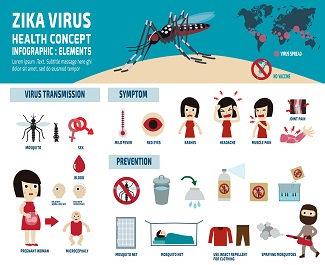What is ultrasound scan or sonogram?
An ultrasound scan, also referred to as a sonogram or ultrasonography, is a prenatal test that uses high-frequency sound waves to show a picture of growing fetus in the womb.
Different types of ultrasound and procedures
The most common kinds of ultrasound are:
Transvaginal ultrasound
This is usually done in the first trimester of pregnancy. This kind of ultrasound is done through the vagina. Pregnant women lay on their back on an exam table. Gynecologist will move a transducer or probe into their vagina. Pregnant women may feel some pressure from the transducer, but it shouldn’t cause pain.
Bladder needs to be empty or just partly full for this prenatal test.
Transabdominal ultrasound
This is usually done in the second or third trimester of pregnancy. Pregnant women lay on their backs on an exam table, and gynecologist will apply a thin layer of gel on the belly. The gel helps the sound waves move more easily so that a better picture of the fetus can be obtained. The gel may have a cooling sensation.
A full bladder is usually needed for this prenatal test because sound waves move more easily through liquid than through air.
In Singapore, this test may take about 40 minutes to complete.
Doppler ultrasound
This is a special type of ultrasound which creates image of blood flow through vessel.
If your baby grows normally, Doppler ultrasound test is usually not necessary.
3-D ultrasound
A 3-D ultrasound takes thousands of pictures at once. It makes a 3-D image of the growing fetus to confirm that his or her organs are developing normally. 3-D ultrasound can also help to check for problems in the uterus.
4-D ultrasound
This is like a 3-D ultrasound, but it also shows baby’s movements in a video.
Use of Ultrasound scan in first trimester during pregnancy
According to KKH women and children hospital, the first ultrasound scan is performed between 11 weeks and 13 weeks 6 days. Reasons for conducting ultrasound in this stage include the following:
1. To confirm that you are pregnant.
2. To check the fetal heartbeat
3. To check the gestational age of the baby and help to estimate a due date of the baby
4. To check for multiple pregnancies such as twins or triplets
5. To examine the placenta, uterus, ovaries, and cervix
6. To diagnose an ectopic pregnancy (when the fetus does not attach to the uterus) or miscarriage and
look for any abnormal growth in the fetus
Use of ultrasound during second and third trimesters of pregnancy
In the second trimester (12 to 24 weeks) and the third trimester (24 to 40 weeks or birth), an ultrasound may be done to:
1. To verify fetal position and breech presentation (breech, transverse, cephalic, or optimal)
2. To determine the baby’s sex. Of course, you can choose not to know. Some doctors will ask before they reveal it to you.
3. To confirm multiple pregnancies
4. To look at the placenta to check for problems, such as placenta previa (when the placenta covers the cervix) and placental abruption (when the placenta separates from the uterus prior to delivery)
5. To check for characteristics of Down syndrome (normally done between 13 and 14 weeks)
6. To check for congenital abnormalities or birth defects
7. To examine the fetus for structural abnormalities or blood flow problems
8. To monitor the levels of amniotic fluid
9. To diagnose problems with the ovaries or uterus, such as pregnancy tumors
10. To measure the length of the cervix
11. To guide other tests, such as amniocentesis
Use of Doppler Ultrasound
This is used only when gynecologist suspect that the baby is not growing normally.
It measures the blood flow in the umbilical cord and in some of your baby’s blood vessels. You also may get a Doppler ultrasound if you have Rh disease. This is a blood condition where there is incompatibility between the blood type of a mother and that of her fetus.
Subscribe to receive newsletter on pregnancy and parenting in Singapore.


